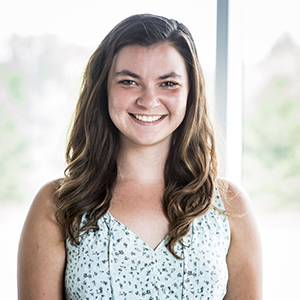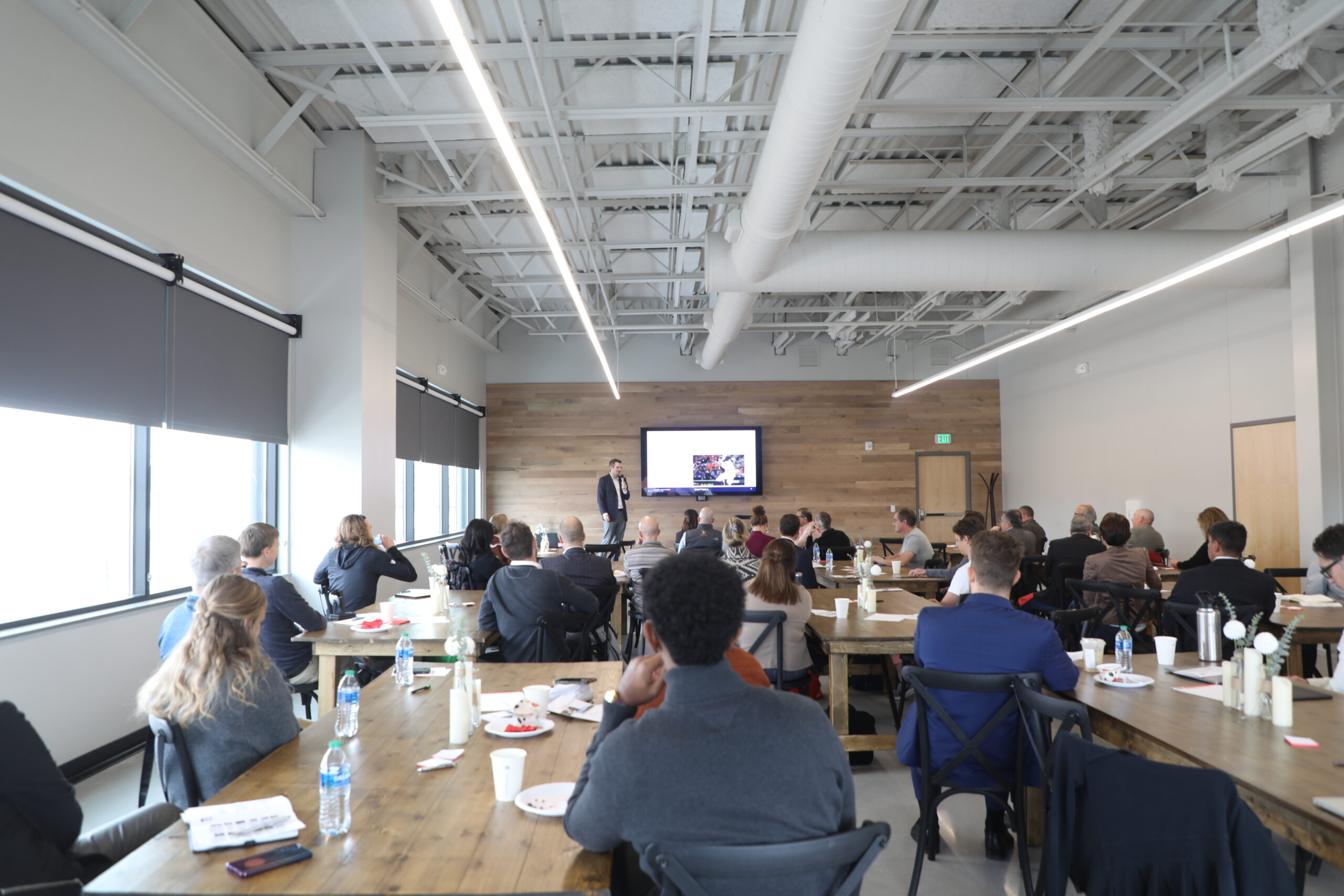Plus, meet the startups pitching in Best of the Midwest showcase
Supporting active and aspiring Iowa angel investors and continuing to build the state’s connections and presence with risk capital stakeholders across the Midwest is the goal behind the second annual Iowa Angel Investors Summit, a one-day event scheduled for Nov. 14 in Des Moines.
The event, hosted by the Greater Des Moines Partnership, Plains Angels, and the Ag Startup Engine, was initially created to reach an untapped pool of angel investors in the state as angel investing is one of the first funding sources available to startup companies in their earliest stages.
Bringing angel investment groups and stakeholders from other Midwest states to the event will be an element again this year, Diana Wright, startup community builder at the Greater Des Moines Partnership, said. There will be presenters from the Twin Cities, Chicago and Nebraska, as well as Midwest startups that will pitch in the Best of the Midwest showcase.
Other Midwest regions and cities view Des Moines as a “key player,” Wright said, “and that’s just built on a lot of those relationships.” Closer collaboration among Midwest peers can support deal flow as startups seek investors who are the right fit for their company, she said.
Mikayla Sullivan, a startup founder and investor, said in collaborating with the other Midwest regions participating in the MIT Regional Entrepreneurship Acceleration Program, there are ideas that could apply to Iowa’s angel investing community.
“I’m excited for Mickayla Rosard and what Groove Capital is doing,” Sullivan said. “One of the takeaways that I’ve gleaned from conversations with her [is] having someone in the ecosystem that is dedicated to filling that gap and providing that structure for angel investors is really critical, and is going to just allow it to be accelerated 10 times faster than if there’s not someone driving it. You almost need that champion.”
Minnesota-based Groove Capital’s model places a “heavy emphasis on supporting the angel community,” she said.
Sullivan and Wright said there is opportunity for both increased angel investment activity and additional institutional venture capital funds, including lead investors, in Iowa’s early-stage funding ecosystem.

“The more angel investors, the more funds there are, the more de-risked a company is, the more likely that it’s going to be successful,” Sullivan said. “I think the answer is like there can never be too many.”
She said VC funds and other entrepreneurial programs that are Iowa based but have a regional or national reach can help increase the amount of investors and the “caliber” of startups touching Iowa’s ecosystem.
“I think having programs where you’re engaging startups from all over the U.S. that are in different fields but are on a similar growth trajectory, that helps raise that tide, whereas if you’re only in your own bubble and you never get outside of your bubble, it’s hard to know how you can get better,” she said.
Engaging angel investors from a range of backgrounds and expertise also plays into the future of Iowa’s risk capital ecosystem, Tej Dhawan, co-founder of angel investor group Plains Angels, said in an email.
“I remain firmly of the opinion that larger numbers of angel investors from diverse backgrounds — geographic, gender, industry, experience — are critical to a healthy ecosystem. Ecosystems are, by definition, rooted in diversity,” Dhawan said. “Further, more angels need to see diverse companies pitching and presenting to find efficacy for their own portfolios.”
State of early-stage funding in Iowa
Creating an active and growing angel investing environment requires looking at the state and needs of early-stage funding overall.
Dhawan said that his assessment of the gap in early-stage funding for startups, which was shared at the 2022 Iowa Angel Investor Summit, remains the same. At the 2022 event, he said Iowa is in need of funding sources that can help companies with around $25,000 in funding make the jump to $500,000, which is the level where angel investors may start taking interest in a startup.
Plains Angels has seen changes in the last year in the number of companies seeking funds and their phase of growth, Dhawan said. He said fewer companies overall have sought funds from the angel investor group, and the companies they have seen are seeking growth-stage capital rather than early-stage funding.
In the last few years, Fin Capital Investor Association, an angel investing group of all-women investors, has seen a “significant increase” in entrepreneurs seeking capital from the group, Cassie Edgar, vice president of the group’s board of directors, said in an email. Half of the entrepreneurs that have shared their pitches with Fin’s members in the last year have been women, she added.
Wright said one possible long-term effect on the ecosystem is the opportunity for experienced angel investors to become a limited partner to a fund, which would mean supplying the capital to back investments in startup companies.
“That’s really critical as we grow our funds is having those individual family offices participate as larger funds grow,” she said.
An area Wright and other stakeholders are currently working on is finding a community partner to support startups getting the matching funding they need to apply for one of the Iowa Economic Development Authority’s Innovation Continuum funds.
The Wellmark Venture Fund going inactive left a gap in that space, Wright said, but it’s a space angel investors can also easily step into.
“With all the state funding, that helps de-risk the angel investor’s decision,” she said. “They automatically know [this startup] is going to receive $100,000 from the state of Iowa, and so right there you have someone that is obviously vetting that startup for investment.”
Funding from the State Small Business Credit Initiative (SSBCI) increased the amounts available to startups at each stage of IEDA’s continuum. Startups can now apply for an up to $175,000 loan from the Demonstration fund, for example. But the SSBCI funding, new this year, also increased the matching fund requirement for the startup, which some companies have had difficulty meeting, Wright said.
Other measures Wright said could help lower barriers for Iowa angel investors would be the return of the Angel Investor Tax Credit, which IEDA has suspended applications for until 2025. She said startups also need to make sure their business is in an investment-ready position before approaching angel investors.
“These startups have to be ready for investment if they’re going to take the time out of someone’s day to pitch their business,” she said. “[The ecosystem has] to also be making sure we have quality, ready-to-go startups pitching, and that definitely comes from our accelerators, our education programs.”
Meet the nine startups pitching in the Best of the Midwest investment showcase
New to this year’s Angel Investor Summit is the Best of the Midwest investment showcase, where nine startups that are actively fundraising will pitch their businesses to the accredited investors and investor groups in attendance. After the pitches, the Best of the Midwest investment will be formed, where multiple angel investors can come together to invest in one or more of the presenting companies.
Des Moines-based angel investor group Plains Angels will manage the investment process following the event. Investors will have 14 days after the event to choose to invest in the companies, select their preferred amounts and indicate interest to Plains Angels. The full FAQ document for investors addressing due diligence, term sheets and fees is available to download here.
Wright said the summit, and the showcase specifically, are examples of Iowa’s involvement in the regional startup ecosystem.
“I think it shows regionally there are things going on [here] and we’re trying to support startups, but also support our investors and help them learn,” she said.
Sullivan said this approach to pitching “streamlines” the investment process for startups.
“Instead of them having to go to five or six different angel groups, they can now just get in front of one group and all the money can be pooled into one vehicle, so it just helps speed up their fundraising process,” Sullivan said.
The startups participating in the Best of the Midwest are:
- CodeBuddy, Omaha and Lincoln, Neb.
- CodeBuddy helps software developers complete complex coding tasks five times faster and cheaper by combining the power of crowdsourcing and artificial intelligence.
- Raising: $750,000
- Dhakai, Des Moines, Iowa
- Dhakai is the first tech-enabled factory direct supply chain solution for promotional brands and manufacturers through the first operating system designed for the industry.
- Raising: $1 million
- Elevator, Omaha, Neb.
- Elevator is a community-focused, co-warehousing concept designed to support small and medium businesses that value flexibility, logistics support and community.
- Raising: $2 million
- Foundations in Learning, Coralville, Iowa
- Foundations in Learning is the developer of WordFlight, our flagship product, that brings the science of learning to reading curricula and instruction.
- Raising: $1.1 million
- Idem Irrigation, Gering, Neb.
- Idem Irrigation is at the forefront of agricultural innovation, providing advanced irrigation solutions that combine state-of-the-art technology with sustainable farming practices.
- Raising: $750,000
- Inseer, Iowa City, Iowa
- Inseer leverages computer vision to develop an artificial intelligence platform to enhance workplace safety, improve ergonomics, and boost productivity across various manufacturing environments.
- Raising: $4.5 million
- Midland Co., Ames, Iowa
- Midland Co. is a land-based seafood company dedicated to raising sustainable, ethical, and delicious seafood. Using innovative Algae-Based RAS (recirculating aquaculture systems) technology, Midland Co. strives to be stewards of the environment.
- Raising: $500,000
- Mogl, Palm Beach, Fla. (Notre Dame and Irish Angels-backed)
- Mogl is the leading NIL (name, image and likeness) software company and the No. 1 influencer marketing platform connecting athletes to brands and fans for endorsements, appearances and more.
- Raising: $1.8M
- ReEnvision Ag, Nora Springs, Iowa
- ReEnvision Ag is creating a new category of planter for farmers: the Ultra-Low Disturbance Planter. Farmers care about the land, and it is becoming increasingly important to ecosystem markets to take care of the soil, sequester carbon, reduce carbon dioxide emissions and improve water quality.
- Raising: $1.5 million
